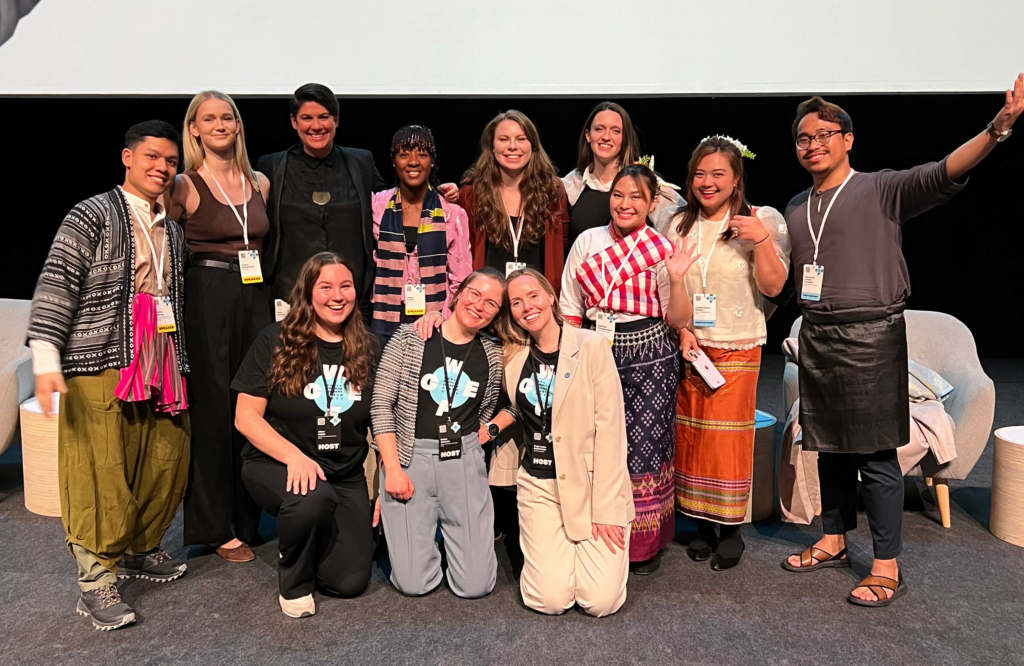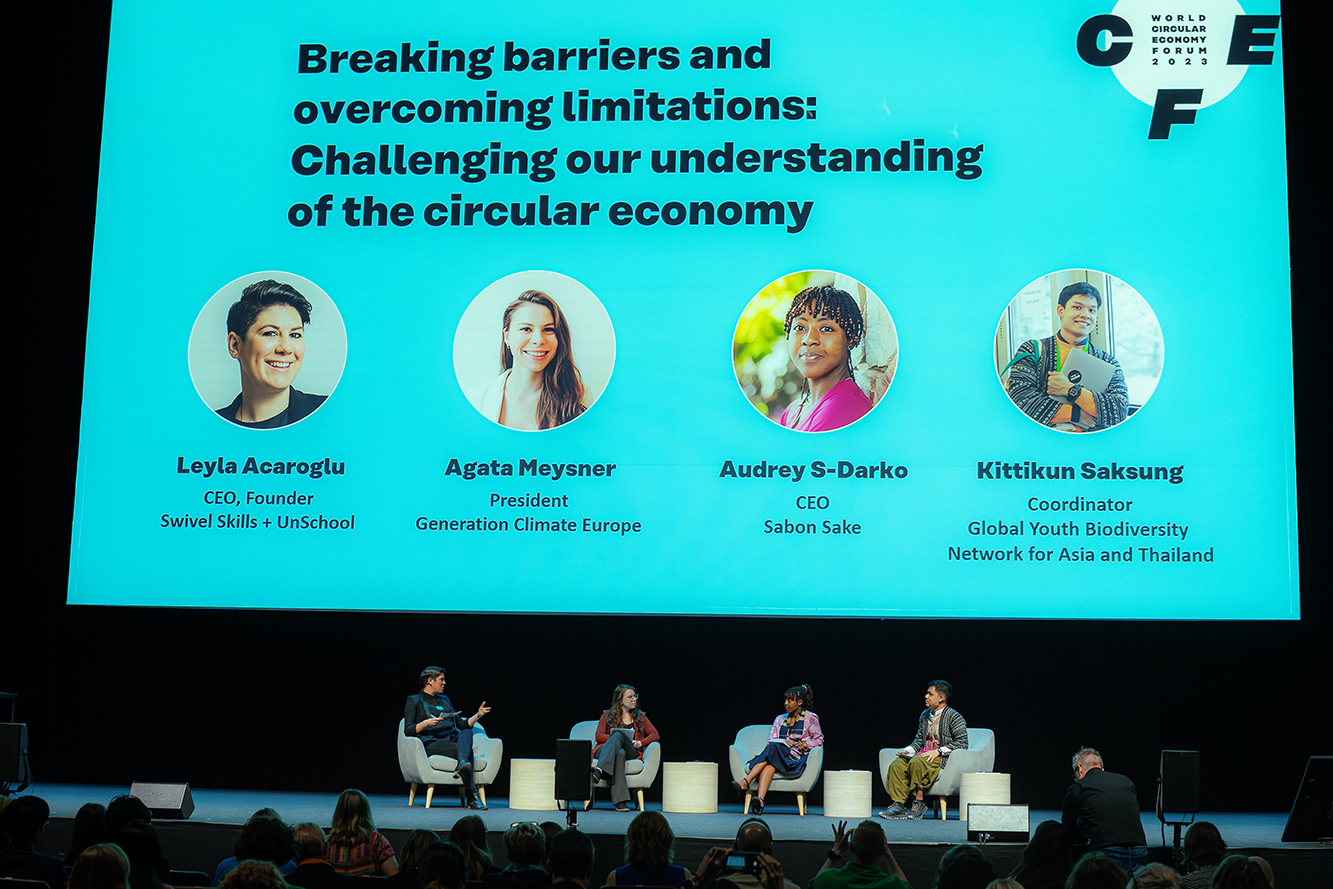At its core, the circular economy is about ensuring long-term sustainability and being a good ancestor for future generations. Therefore, we should be eager to include younger generations in decision-making and innovation already today.
Recognising the importance of youth engagement, the World Circular Economy Forum 2023 hosted a youth-led plenary designed by Generation Climate Europe, ReGeneration 2030, ASEAN Youth Organization and the Global Youth Biodiversity Network. The session emphasised the importance of engaging in difficult conversations and embracing bold ideas, to pave the way toward a more sustainable and inclusive world.
Have a look at what the six ingredients for a just and circular future mean in practice, according to these young leaders.
Clarity
How many times have you claimed that young people will drive the much-needed change in societies, policies and businesses? While young people are often hailed as the hopes of humanity, we must also recognise the pressure this places on them.
Surveys have shown that younger generations are slightly more aware of the ecological crises. It’s no wonder that the constant insecurity and recurring natural catastrophes are leaving youth feeling stress and anxiety.
To truly empower young change makers, we need to provide them with clarity of where and how to start, trustworthy sources of information and partnerships with allies. The educational system can facilitate this by integrating the circular economy, including practical skills, into teaching.
Additionally, reverse mentorship can provide low barrier opportunities for engagement by bringing together business leaders and youth.
We need to know what the heck is going on and we need to find clarity in this chaos of complexity.
Zuzana Malinkovičová, Student Innovation Manager, DTU Skylab
Meaningful participation
According to young leaders, engagement of youth voices in discussion about our shared future should be a given. For example, the youth movement ReGeneration 2030 has intentionally created collective spaces where politicians, business leaders and youth can interact as equals.
However, speakers also stressed that not all engagement is meaningful. Long-term involvement, participation from the beginning to the end of projects, and the ability to change business as usual are essential criteria for meaningful participation.
To walk the talk, the impact of youth participation should be monitored and communicated transparently. Additionally, speakers called for platforms and spaces for young people to share their ideas with governments and the private sector.
Young people engaged must understand how participation will be taken into account and have the ability to change business as usual.
Kittikun Saksung, Coordinator, Global Youth Biodiversity Network for Asia and Thailand
Harnessing the power of communities
While the circular economy is often seen as a global solution, local approaches are often the most effective ones. Place-based solutions leverage local knowledge, adapt to local ecology, and respect local culture. By empowering communities, we can create solutions that truly work.
Bringing the learnings from global forums like WCEF back to local circles can help adapt global knowledge and goals to local realities. In addition, giving power to historically marginalised people will generate grassroots actions, assimilate knowledge and create long-lasting strategies.
We need to take the change to our own communities back home.
Audrey S-Darko, CEO, Sabon Sake
Systemic approach
Young activists are hitting the bull’s eye with bold statements: we need to rethink our bottom line and prioritise the biosphere’s integrity and human flourishing over profit. This will ultimately require embracing the fact that change is often uncomfortable and not everyone will be happy about it. Maybe that slight discomfort, disagreeing with kindness and embracing conflict is needed to really move us forward.
While the circular economy is a valuable tool, at WCEF2023 young people called for the need to evaluate which circular solutions truly dismantle the current destructive system and which ones perpetuate the current overconsumption model. For example, are textiles made from agricultural waste part of the solution if they are still designed for short-term use? The answer is simple: no.
Green growth is like McDonalds: it’s quick, easy and tempting but it leaves you hungry for real nutritious food. And we have the same situation here, we need the real solutions that fuel people and the planet.
Agata Meysner, President, Generation Climate Europe
Human rights and joy
Young leaders criticised the current economic system for sacrificing human rights in the name of maintaining consumerism. For a truly just and circular future to become reality, securing human rights for all people is central.
For example, the green transition should not come at the cost of driving indigenous peoples from their lands due to mining activities.
And finally, joy. In the face of uncertainties and the shifting ecology of the planet earth, we need joy to get through each day. It reminds us of everything not yet lost and still worth saving.
I have everything to fight for. There is so much out there that has not yet been lost. You can find hope all around you if you just open your eyes.
Helena Gualinga, Environmental and human rights activist
To hear more from these young leaders, see the session recording.


